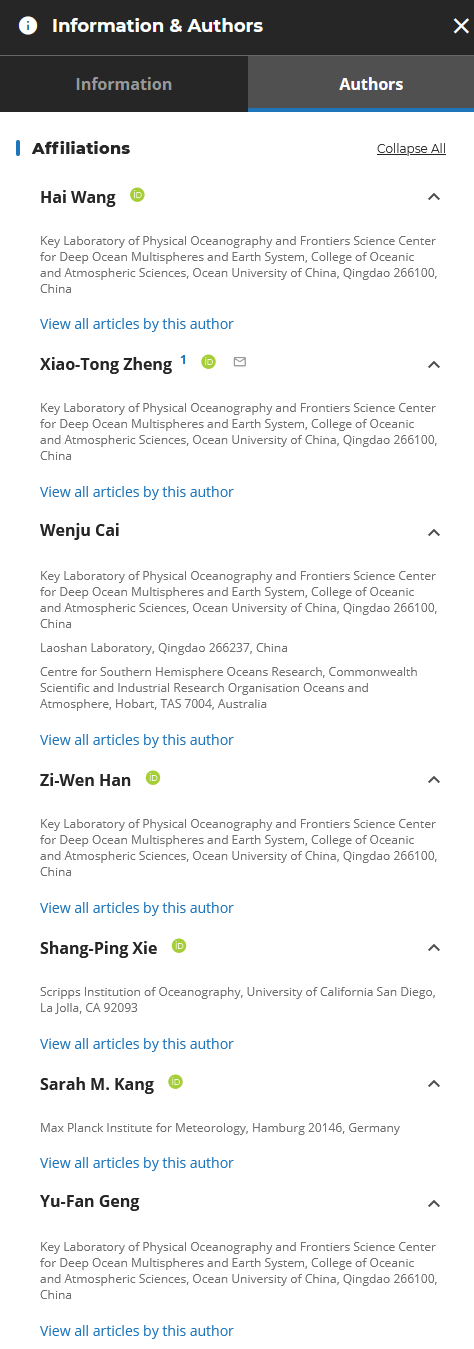- cross-posted to:
- funny@lemmygrad.ml
- cross-posted to:
- funny@lemmygrad.ml
Boy China can’t catch a break huh? 10 years ago they were polluting too much. 10 years later and they’re polluting too little. Make up your mind China watchers!
During the cold war, the anticommunist ideological framework could transform any data about existing communist societies into hostile evidence. If the Soviets refused to negotiate a point, they were intransigent and belligerent; if they appeared willing to make concessions, this was but a skillful ploy to put us off our guard. By opposing arms limitations, they would have demonstrated their aggressive intent; but when in fact they supported most armament treaties, it was because they were mendacious and manipulative. If the churches in the USSR were empty, this demonstrated that religion was suppressed; but if the churches were full, this meant the people were rejecting the regime’s atheistic ideology. If the workers went on strike (as happened on infrequent occasions), this was evidence of their alienation from the collectivist system; if they didn’t go on strike, this was because they were intimidated and lacked freedom. A scarcity of consumer goods demonstrated the failure of the economic system; an improvement in consumer supplies meant only that the leaders were attempting to placate a restive population and so maintain a firmer hold over them.
we need a bot that posts this with
 as the trigger phrase
as the trigger phrase
China watchers
Western “research” guide: find the effect, then find the cause (automatically China), then invent a link
Ending of the yahoo article.
Speaking to Science.org, Maria Rugenstein, a Colorado State University said that the research shows the climate can respond rapidly, and with unexpected repercussions. She said: “I would take this as a cautionary tale.”
Huh? That interesting. I wonder why she says that.
Ending of the original article on science.org
If the findings hold up, Rugenstein says, they also offer a lesson about the potential consequences of intentionally injecting aerosols high into the atmosphere, a geoengineering strategy some have proposed as a way to cool the planet. The study shows the climate can respond quickly, with unexpected repercussions an ocean away. “I would take this as a cautionary tale,” she says.
Dang, I wonder why the yahoo article takes out this important piece of context

Looks like the article has been edited and the current version is fine, idk what changed or what version you saw. Right now the last 3 paragraphs are
The research could offer a warning about efforts in ‘solar geoengineering’ - plans to deliberately reflect heat back into space using aerosols.
Such approaches - including the idea of spraying aerosols into the air from a fleet of planes - have been debated by academic institutions around the world.
Speaking to Science.org, Maria Rugenstein, a Colorado State University said that the research shows the climate can respond rapidly, and with unexpected repercussions. She said: “I would take this as a cautionary tale.”
The whole thing is a bit incoherent to me. Like the point of SRM is to increase aerosols to decrease temperatures, and the article is saying that a decrease in aerosols increased temperatures - shouldn’t that be taken as evidence in favor of SRM?
Rereading a couple times, I think the idea is that these heat waves are hotter than if the aerosols had never been released in the first place.
As less heat was reflected back into space over China, warming of coastal regions in Asia began, resulting in the development of high-pressure systems.
That, in turn, made low-pressure systems in the middle Pacific more intense, resulting in the Aleutian Low growing bigger and moving south which weakened the westerly winds that typically cool the sea surface.
The result was hotter conditions.
The meteorology is over my head but I think this is describing a rebound effect that caused more extreme weather.
I may have skimmed a bit too fast

that makes the whole thing even funnier
I’m gonna have to insist they pick between “it’s fine were not doing anything about climate change because China is worse”
And
“China is undermining the west with all their renewable energy”
Also the container ships that used to burn the worst kind of petrol ever contributed to cloud formation increasing the albedo, but they finally stopped so that’s actually bad
Lol, they must be so happy they found a cost.
Reduction of aerosols is actually a pretty scary possible vector for rapid warming. If there was some kind of catastrophe that shut down most smoke stacks and global shipping then the sulfur particulates would precipitate out of the atmosphere, causing the temperatures to jump from between half a degree to one degree. We saw some of this during COVID shutdowns, and those were only ever partial.
I recall reading about that. I’m becoming increasingly convinced that we will end up having to do some sort of geoengineering like seeding reflective particles in the atmosphere going forward. That will of course create its own risks and unintended consequences.
We’ll absolutely need to do geoengineering, and that’ll probably be a flashpoint for global conflict. Sulfates in the atmosphere increase albedo and cloud formation, but they also acidify the rain when they precipitate back out of the atmosphere. There’s so many little balancing acts like that all over our environment and it’ll require global central planning… somehow.
This is where China gives me hope, if anybody can take leadership on such a huge project it’s China with their demonstrated ability to deliver huge engineering miracles. I do think we’re going to be in for a rough time, but I do remain optimistic that humanity will come through in the end, and the whole capitalist ideology will be forever discredited when the dust settles.
This is where I see a potential flashpoint for global conflict. The United States will do everything in its power to oppose and destabilize China as it emerges as a global leader, even as the US itself declines due to its inability to adapt to climate change.
I have a lot of hope in China but I worry.
That’s my read on the situation as well. I imagine anybody who’s spent any time trying to understand what’s happening is quite worried at this point, but at the end of the day all we can do is watch and hope for the best. The comic incompetence that’s been on display by the US regime over the past two years is a big cause of optimism as well. I firmly believe that Chinese leadership can effectively plan around whatever schemes these clowns come up with going forward.
Read the fucking article before complaining about it. I swear it feels like we’re still on
 sometimes. The article links the study, where 9 of the 12 authors (including the first 4) are from Chinese universities. This isn’t “Western research” making up a reason to blame China. Reading the article several times I can’t find anything in it that’s actually critical of China, unless you count the use of “blame” in “Reductions in emissions of aerosols from Chinese factories may be partly to blame for recent heatwaves in the Pacific, a new study has said.” To me it just looks like a quick summary of the study (or at least the abstract, scihub doesn’t have it so idk). Can anyone point to anything actually untrue or unfair from the article?
sometimes. The article links the study, where 9 of the 12 authors (including the first 4) are from Chinese universities. This isn’t “Western research” making up a reason to blame China. Reading the article several times I can’t find anything in it that’s actually critical of China, unless you count the use of “blame” in “Reductions in emissions of aerosols from Chinese factories may be partly to blame for recent heatwaves in the Pacific, a new study has said.” To me it just looks like a quick summary of the study (or at least the abstract, scihub doesn’t have it so idk). Can anyone point to anything actually untrue or unfair from the article?The free bits of the study for reference:
Significance
The period of 2010 to 2020 has witnessed the warmest Northeast Pacific (NEP) sea surface temperatures ever recorded, with several prolonged extreme ocean warming events. Though year-to-year internal climate variability may partially explain the appearance of these events, why they occurred dramatically more frequent remains elusive. We find that the rapid aerosol abatement in China triggers atmospheric circulation anomalies beyond its source region, driving a substantial mean surface warming in the NEP, which provides a favorable condition for extreme ocean warming events. Our findings provide an important insight into the mechanisms of the North Pacific ocean-atmosphere changes, highlighting the need to consider the exacerbated risks arising from a reduction in anthropogenic aerosol emissions in assessment of climate change impacts.
Abstract
During 2010 to 2020, Northeast Pacific (NEP) sea surface temperature (SST) experienced the warmest decade ever recorded, manifested in several extreme marine heatwaves, referred to as “warm blob” events, which severely affect marine ecosystems and extreme weather along the west coast of North America. While year-to-year internal climate variability has been suggested as a cause of individual events, the causes of the continuous dramatic NEP SST warming remain elusive. Here, we show that other than the greenhouse gas (GHG) forcing, rapid aerosol abatement in China over the period likely plays an important role. Anomalous tropospheric warming induced by declining aerosols in China generated atmospheric teleconnections from East Asia to the NEP, featuring an intensified and southward-shifted Aleutian Low. The associated atmospheric circulation anomaly weakens the climatological westerlies in the NEP and warms the SST there by suppressing the evaporative cooling. The aerosol-induced mean warming of the NEP SST, along with internal climate variability and the GHG-induced warming, made the warm blob events more frequent and intense during 2010 to 2020. As anthropogenic aerosol emissions continue to decrease, there is likely to be an increase in NEP warm blob events, disproportionately large beyond the direct radiative effects.
If you actually read the fucking article and the source material, do explain the reason for this interesting discrepancy. Why did the Yahoo article feel the need to cut this crucial context from the quote?
Yahoo version
Speaking to Science.org, Maria Rugenstein, a Colorado State University said that the research shows the climate can respond rapidly, and with unexpected repercussions. She said: “I would take this as a cautionary tale.”
the ending of the original article
If the findings hold up, Rugenstein says, they also offer a lesson about the potential consequences of intentionally injecting aerosols high into the atmosphere, a geoengineering strategy some have proposed as a way to cool the planet. The study shows the climate can respond quickly, with unexpected repercussions an ocean away. “I would take this as a cautionary tale,” she says.
The research could offer a warning about efforts in ‘solar geoengineering’ - plans to deliberately reflect heat back into space using aerosols.
Such approaches - including the idea of spraying aerosols into the air from a fleet of planes - have been debated by academic institutions around the world.
Speaking to Science.org, Maria Rugenstein, a Colorado State University said that the research shows the climate can respond rapidly, and with unexpected repercussions. She said: “I would take this as a cautionary tale.”
they literally just broke up the paragraphs
I can’t believe then when you cut the context out of the yahoo article it no longer has context

They very clearly broke it up in a way that disconnects the two statements removing context from the quote from the scientist, but do go on.
Reductions in emissions of aerosols from Chinese factories may be partly to blame for recent heatwaves in the Pacific, a new study has said.
The study, published in the Proceedings of the National Academy of Sciences, suggests that repeated marine heatwaves over the past decade could be linked to reduction in pollution from factories in China.
“The study”? What study? There’s no context!
Over the past decade, the north Pacific has experienced multiple such heatwaves – also known as "warm blob” events – leading to fish die-offs, toxic algae blooms and missing whales.
Such heatwaves have been generally attributed to global warming though it is unknown exactly why it could cause such sudden and variable increases in a specific part of the planet.
“Such heatwaves”? What heatwaves? There’s no context!
The entire article is written like this. Every single sentence is its own paragraph other than the last one, which tacks a short quote at the end.
🤨
all due respect, but just take the L man
So CO2 emissions are good actually because the uninhabitable state is extra uninhabitable now.
That’s right, we went from China being bad because it’s a major polluter to China being bad because now they’re the main purveyor of green tech and the world isn’t polluting enough!
Now how are we supposed to prove that American innovation has the capacity to solve the problem?
If I recall correctly this happened recently as well when they changed rules for shipping. A reduction in a type of emission from ships worldwide actually had an accelerating effect on global warming because the emissions were counterbalancing other things that were being emitted.














